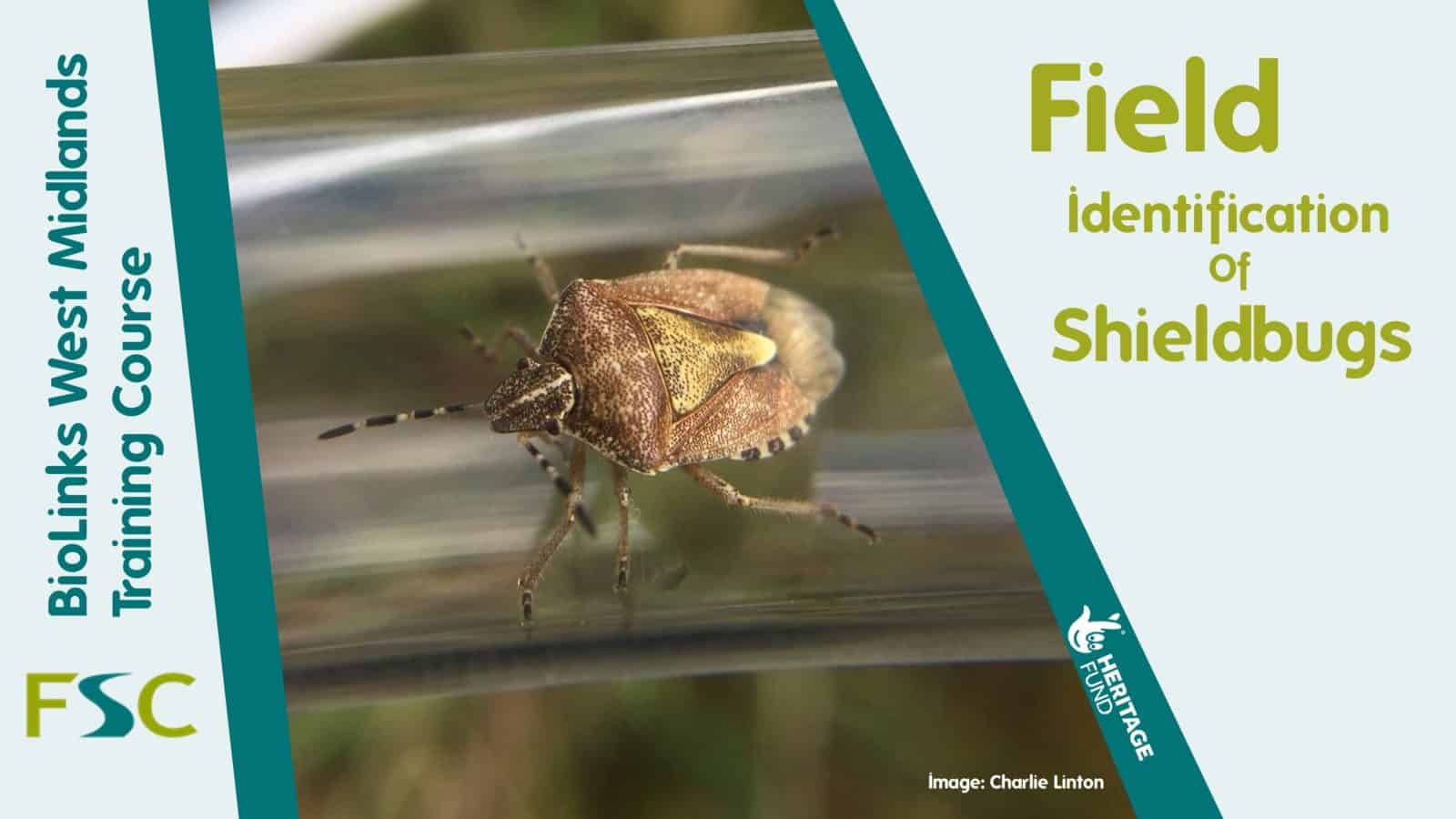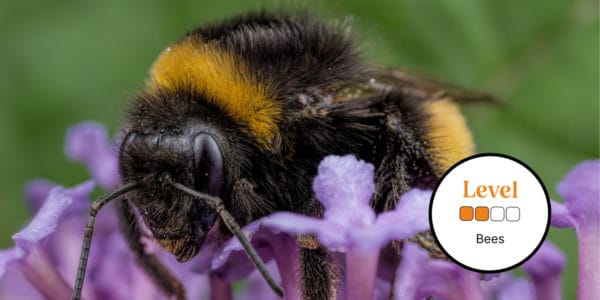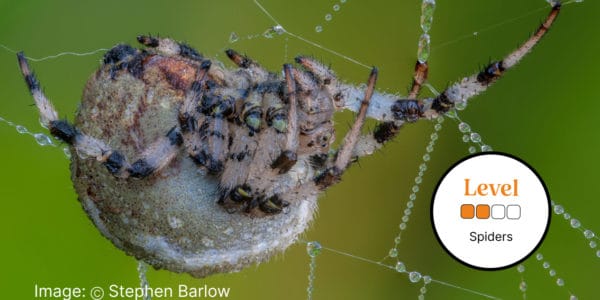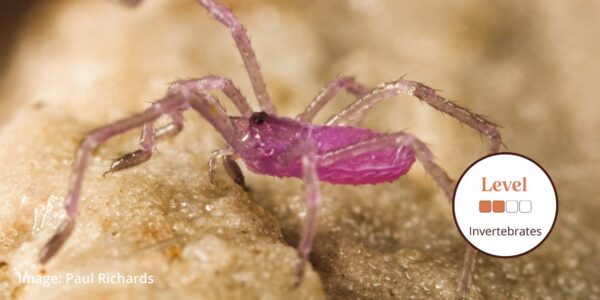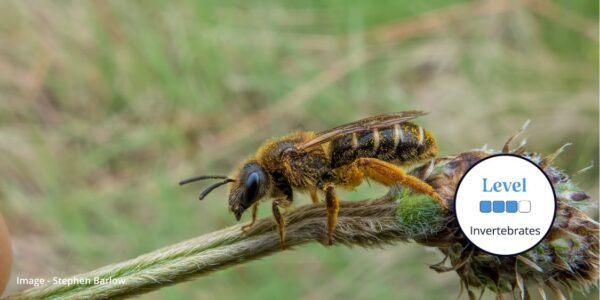True bugs (Hemiptera) are one of the largest groups of insects found in the UK, with nearly 2000 species. There are around 45 species of shieldbugs.
They are characteristic, colourful, and immediately identifiable bugs, named after their shield-like shape. They are found in most habitat types, some species are carnivorous, but most feed on sap sucked from foliage and berries etc.
This course marries together the use of classroom-led learning and outside learning opportunities led by an expert tutor to give learners the skills to be able to identify distinctive species of shieldbugs in the field.
This course is aimed at adults only and course attendees must be at least 18 years old in order to attend.
What will be covered during this course?
- Separating true bugs from other similar looking insect orders.
- An introduction to shieldbug classification and separating shield bugs from other groups of true bug.
- Identification of distinctive species of shield bug using a hand lens and field characters.
- helped to learn and practice identification techniques.
- introduced to submitting shieldbug records.
See the ‘Example Timetable’, ‘What’s Included’ and ‘Before YouAttend’ sections below for more information about this course.
Course Fees
Regular Price: £75 For professionals and residents outside of the UK. Select ‘Attendee: In Person’ Sold Out
Subsidised Price: £10 Subsidised by the FSC BioLinks project for non-professionals eg. volunteers, biological recorders, wildlife gardeners, amateur naturalists and students.Available to UK residents only. Select ‘Attendee Subsidised: In Person’
Tutor: Richard Comont
Richard is a naturalist, entomologist and enthusiastic biological recorder. He specialises in many invertebrate groups. His PhD examined the impact of the alien invasive Harlequin ladybird on native species and he now works for the Bumblebee Conservation Trust leading their science programme. In 2016 he won the Gilbert White Award for terrestrial and freshwater biological recording. He also spends his time writing about wildlife, his books include the Naturalists’ Handbook to Ladybirds; Bumblebees, An Introduction; Spotlight Bumblebees; and The Nature of Malvern. He is currently working on a field guide covering the non-insect invertebrates of Britain.
Covid Measures
In order to keep our customers and staff safe we ask that anyone attending our centres:
- wears a face covering when in shared indoor space (unless exempt).
- maintains social distancing.
- cleans their hands regularly.
- takes a Covid-19 test before they arrive.
Example Timetable
- Please arrive in time for the course to start promptly at 10:00 am.
- Refreshments will be available from 9.45 am.
- The course will end at 4:00 pm.
What's Included
- 6 hours of tuition
- Certificate of attendance
- Any excursions will be on foot
Bursaries and Subsidies
FSC BioLinks
FSC BioLinks is an exciting project for FSC in the South East and West Midlands, bringing together existing volunteers with skills in biological recording and identification, and new volunteers.
This project provides subsidised training courses, learning opportunities and digital tools focussed on invertebrate identification for anyone involved or interested in biological recording, to build and strengthen the community.
Invertebrates provide us with many useful ecosystem services, like pollination and decomposition, which we cannot survive without but their numbers are declining. Few people know how to identify or record invertebrates meaning there is a lack of data
We are delighted to have been awarded a grant of £1.23 million from the National Lottery Heritage Fund for this project.
Before You Attend
Getting to FSC Preston Montford
FSC Preston Montford, Montford Bridge, Shrewsbury SY4 1DX
Direct enquiries: 01743 852040 (Mon-Fri, 9am–5pm)
By Road: From the A5, take the roundabout exit signposted to Mid-Wales and Welshpool (A458). One mile along this road, turn right onto B4473, we are located on the left after approx ½ mile.
By Bus or Train: Shrewsbury stations.
What to bring
- Notebook and pencil
- Lunch
- Hand lens (if you have one)
Due to the outside nature of part of this course, participants are advised to bring suitable clothing and footwear in order to access the site in various weather conditions.
This BioLinks course has aspects that will be taught outdoors with walking to field sites over uneven ground. No special preparation is required providing you are used to gentle exercise. If you have any concerns or questions about access or the activities involved, please get in touch.
There will be a member of staff with first aid training and access to a first aid kit on site. If you have special medical requirements please let us know as soon as possible so we can plan the course.
Sorry this course has ended

